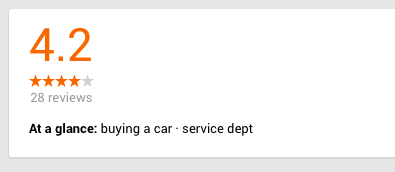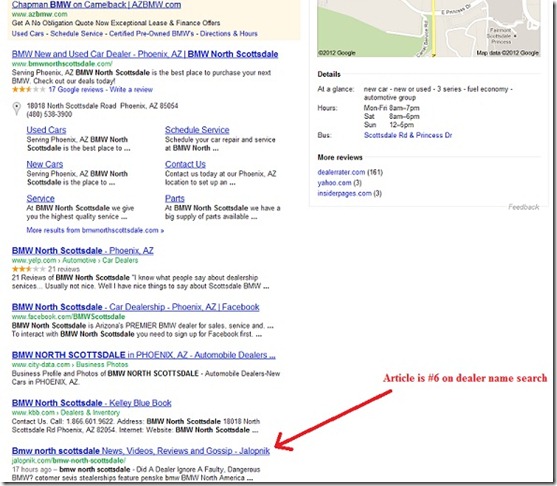 Google can’t seem to make up their minds. That being said, they sneakily introduced a change that I believe most businesses (and consumers) will welcome.
Google can’t seem to make up their minds. That being said, they sneakily introduced a change that I believe most businesses (and consumers) will welcome.
In May of 2012, Google implemented their Zagat rating system which was confusing for both businesses and consumers. The 30-point system just didn’t make sense to most people including, most importantly, consumers.
As you can see by visiting any Google+ local page, they have reverted back to the 5-star rating system. Ultimately, this makes more sense as not only is it easier for the business to understand why their rating is what it is but a consumer intuitively understands what the number “means” in relation to reviews left by other customers.
The biggest thing is that it seems to have been rolled out completely in that the rating now exists inside and outside Google maps and whether you are logged into Google or not and you don’t need to have an upgraded listing as a business owner.
For the score to show, your business must have at least 5 reviews, however.
It isn’t quite updated everywhere yet. It’s still showing the Zagat score in the old version of Google Maps and in Google+ Local search results but I anticipate that this will all be conformed in due time.
 I, personally, welcome this about face and think it’s good for both businesses and consumers.
I, personally, welcome this about face and think it’s good for both businesses and consumers.
What are your thoughts?
[Note: Thanks to 3GEngagement for the tip!]



